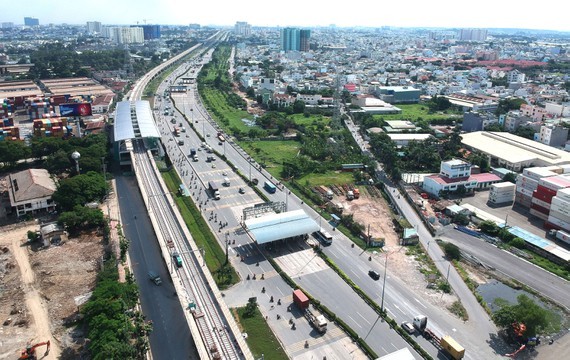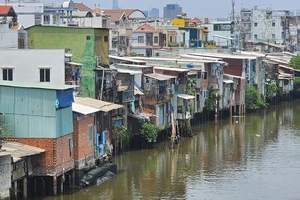
As of July 2020, the government have yet able to secure US$25 billion in capital to complete constructions of all the lines in HCMC first rapid train project due to certain complications, including the Covid-19 pandemic. Commenting on this issue, Former Deputy Minister of Natural Resources and Environment Dang Hung Vo stressed the importance of urban planning to maximize capital earned from land funds around the upcoming train stations.
He cited Da Nang as a good example on urban planning with a clear vision that enabled efficient land clearance and fair compensation for people that were resettled. Most importantly, Da Nang’s authorities could raise the land’s worth significantly and gained added value from infrastructure investments.
“Since HCMC is much bigger in scale compared to Da Nang, we cannot replicate their plans entirely but must instead find innovative ways that would fit a metropolis”, Mr. Vo said. With the right steps, land funds will benefit from being reorganized, people will get properly compensated, and all future profit will go to the government.
On the topic of proper compensation, in order for the people subjected to resettlement to trust the government with their land, he believed a full-disclosure approach is the key. Most scandals so far around land clearance and compensation have stemmed from some private investors with close bonds to the government, and even city officials who had interior motives. In fact, many such incidents have been uncovered, Mr. Vo added.
The land’s value will definitely go up after being acquired and investments are made; the question is how this added value can be shared between investors, previous land owners and the government. If the procedures are made clear to all parties involved, personal gain is not possible for anyone.
When asked about how developed countries handle their land clearance procedures, Mr. Vo noted that HCMC has been using virtually the same process without fully comprehending the steps. The process he mentioned consists of three elements: publicizing all information, getting citizens’ opinions, and carrying out administrative orders in response to such opinions. Problems arose in the past when the authorities could not deal with such a large number of individual proposals and ended up choosing the ones that meet their own interests.
It is worth noting that there are many experts willing to give their two cents on the matter, but their input has barely gained attention at government-level forums. Mr. Vo stated that their role would be invaluable in convincing the people, and the government should make use of their opinions the more the better.
At the end of the interview, he added that a book written by 15th century Spanish explorer Hernando de Soto explains how developed countries successfully make use of their own land fund without the need for FDI. He concluded that the state budget would only be increased if land resources are used correctly during the planning for HCMC metro train project.
























